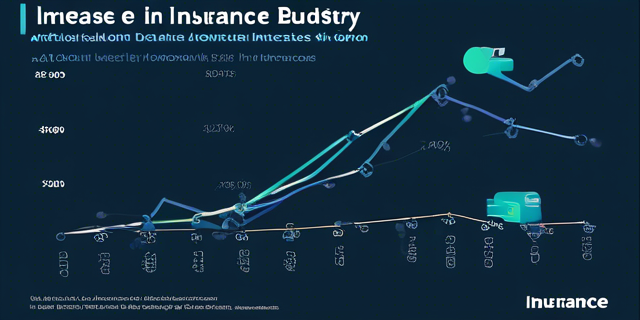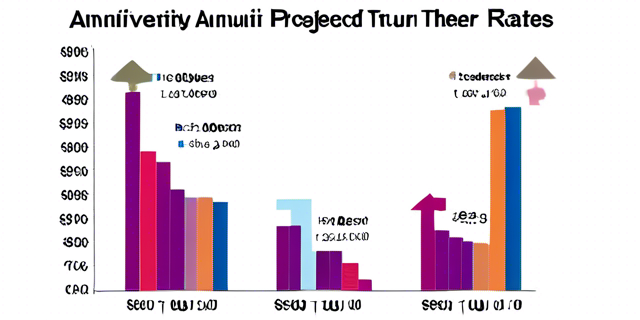Best Car Insurance for Young Drivers 2024

As a seasoned content writer and SEO expert, I understand the importance of crafting engaging, informative, and optimized content that caters to the needs of your audience. In this comprehensive article, we’ll delve into the world of car insurance for young drivers, exploring the best options, key considerations, and practical tips to help you navigate this crucial decision.
Understanding the Unique Needs of Young Drivers
Young drivers, often defined as those under the age of 25, face a unique set of challenges when it comes to car insurance. Factors such as inexperience, higher accident rates, and lack of driving history can lead to higher insurance premiums. However, with the right strategies and knowledge, young drivers can find affordable coverage that meets their needs.
Navigating the Insurance Landscape as a Young Driver
One of the primary concerns for young drivers is the cost of car insurance. According to recent data, young drivers can expect to pay significantly more for their coverage compared to their older counterparts. This is due to the perceived higher risk associated with inexperienced drivers.
The Impact of Age and Driving Experience
Age plays a crucial role in determining car insurance rates for young drivers. Typically, the younger the driver, the higher the premiums. This is because younger drivers are more likely to be involved in accidents, leading insurance companies to view them as higher-risk individuals.
Addressing the Insurance Challenge
Fortunately, there are strategies and options available to help young drivers find affordable car insurance. From exploring discounts and bundling policies to maintaining a clean driving record, young drivers can take proactive steps to manage their insurance costs.
Evaluating the Best Car Insurance Options for Young Drivers

When it comes to selecting the best car insurance for young drivers, several factors come into play. Let’s explore some of the top options and their key features.
Student-Specific Car Insurance Policies
Many insurance providers offer specialized policies catered to student drivers. These policies often include discounts for good grades, safe driving, and even for attending certain educational institutions.
Usage-Based Car Insurance
Usage-based car insurance, also known as telematics, is a growing trend in the industry. These policies use in-car devices or smartphone apps to monitor driving behavior, rewarding safe and responsible driving with lower premiums.
Parental Car Insurance Policies
Young drivers may have the option to remain on their parents’ car insurance policies, which can provide more affordable coverage. This approach often allows young drivers to benefit from their parents’ established driving history and any applicable discounts.
Bundling Car Insurance with Other Policies
Combining car insurance with other types of policies, such as homeowners or renters insurance, can lead to significant savings for young drivers. Insurance providers often offer bundling discounts to incentivize customers to consolidate their coverage.
Choosing the Right Coverage Levels
When selecting car insurance, young drivers must carefully consider the appropriate coverage levels. While minimum coverage requirements vary by state, it’s often advisable to opt for higher liability limits and additional protection to safeguard against the potential financial consequences of an accident.
Navigating the Car Insurance Application Process

The car insurance application process can be daunting for young drivers, but with the right guidance, it can be a straightforward and seamless experience.
Gathering Necessary Information
Before initiating the application process, young drivers should have a comprehensive list of required information readily available, including their driver’s license, vehicle details, and any relevant insurance history.
Comparing Quotes and Providers
It’s essential for young drivers to compare car insurance quotes from multiple providers to ensure they’re getting the best possible coverage at a competitive price. Online comparison tools can greatly facilitate this process.
Understanding the Application Form
The car insurance application form may seem intimidating, but it’s crucial for young drivers to carefully review and understand each section. This includes providing accurate personal information, vehicle details, and any relevant discounts they may be eligible for.
Navigating the Underwriting Process
The underwriting process is where insurance providers assess the risk associated with insuring a particular driver. Young drivers should be prepared to provide additional information, such as their driving history and any safety features in their vehicle.
Finalizing the Car Insurance Policy
Once the application process is complete, young drivers should carefully review the final policy details, including the coverage limits, deductibles, and any exclusions. This ensures they fully understand the scope of their car insurance protection.
Strategies to Lower Car Insurance Costs for Young Drivers
As mentioned earlier, young drivers often face higher car insurance premiums due to their perceived risk. However, there are several strategies they can employ to help reduce their insurance costs.
Maintaining a Clean Driving Record
One of the most effective ways for young drivers to lower their car insurance rates is to maintain a clean driving record. Avoiding traffic violations, accidents, and other incidents can demonstrate responsible driving behavior to insurance providers.
Taking Advantage of Discounts
Insurance providers often offer a variety of discounts that can significantly reduce the cost of car insurance for young drivers. These may include discounts for good grades, driver’s education courses, and even for being a student.
Choosing an Appropriate Vehicle
The type of vehicle a young driver selects can also impact their car insurance premiums. Opting for a safer, less powerful, and less expensive vehicle can help mitigate the higher costs associated with insuring a young driver.
Increasing Deductibles
By increasing their deductibles, young drivers can lower their monthly car insurance premiums. However, it’s essential to ensure that the selected deductible amount is still affordable in the event of a claim.
Exploring Usage-Based Insurance
As mentioned earlier, usage-based car insurance can be a particularly beneficial option for young drivers. By demonstrating safe driving habits, they can potentially earn discounts and lower their premiums over time.
Preparing Young Drivers for the Road Ahead
Equipping young drivers with the knowledge and resources they need to navigate the car insurance landscape is crucial for their long-term financial well-being.
Educating Young Drivers on Insurance Basics
Providing young drivers with a basic understanding of car insurance can empower them to make informed decisions and advocate for their needs. This includes explaining coverage types, deductibles, and the factors that influence premiums.
Encouraging Responsible Driving Habits
Developing responsible driving habits is not only essential for safety but can also have a significant impact on a young driver’s insurance rates. Parents and guardians can play a vital role in instilling these habits.
Involving Young Drivers in the Insurance Process
Actively involving young drivers in the car insurance process, from researching options to managing policies, can empower them and prepare them for future insurance-related decisions.
Fostering Long-Term Financial Responsibility
Helping young drivers understand the long-term financial implications of car insurance can encourage them to make prudent choices and develop a responsible financial mindset.
Conclusion
Navigating the car insurance landscape as a young driver can be a daunting task, but with the right strategies and knowledge, it can be a manageable and even empowering experience. By understanding the unique needs of young drivers, exploring the best insurance options, and implementing cost-saving measures, young drivers can find affordable coverage that meets their specific requirements.
Remember, the key to successful car insurance for young drivers lies in being proactive, informed, and responsible. By following the guidance outlined in this article, young drivers can take control of their insurance situation, safeguard their financial well-being, and embrace the freedom and independence that comes with the open road.
FAQs
- What are the most common factors that affect car insurance rates for young drivers?
- Age and driving experience
- Vehicle type and safety features
- Driving history, including accidents and traffic violations
- Geographic location and local risk factors
- Coverage levels and deductible amounts
- How can young drivers take advantage of discounts to lower their car insurance costs?
- Maintain good grades (for student discounts)
- Complete defensive driving courses
- Enroll in usage-based insurance programs
- Bundle car insurance with other policies
- Remain on a parent’s insurance policy
- What are the benefits of using a usage-based car insurance policy as a young driver?
- Opportunity to demonstrate safe driving habits and earn discounts
- Personalized rates based on actual driving behavior
- Increased awareness and accountability for driving practices
- Potential long-term cost savings as safe driving is rewarded
- How can young drivers maintain a clean driving record to keep their car insurance rates low?
- Strictly follow all traffic laws and regulations
- Avoid speeding, distracted driving, and other risky behaviors
- Complete a defensive driving course to improve skills
- Be vigilant and attentive when behind the wheel
- Report any accidents or violations to their insurance provider
- What should young drivers consider when selecting the appropriate coverage levels for their car insurance?
- State minimum coverage requirements
- Potential financial risks and liabilities in the event of an accident
- Availability of additional protection, such as collision and comprehensive coverage
- Balancing coverage levels with monthly premium costs
- Consulting with an insurance professional for personalized recommendations








